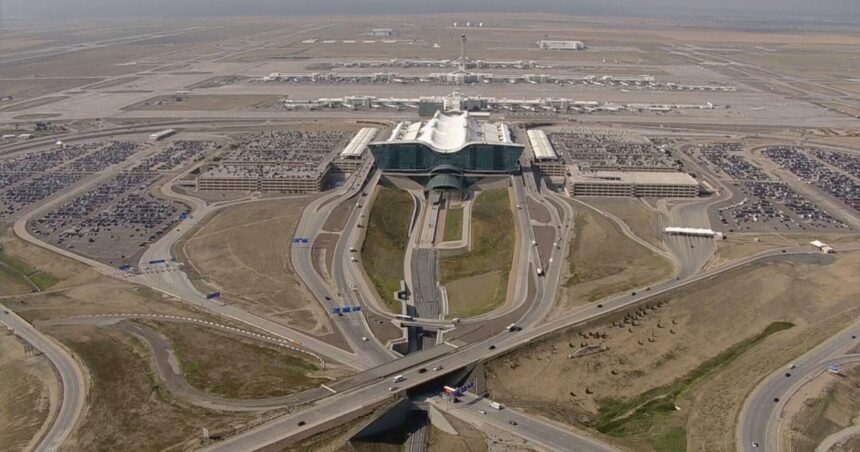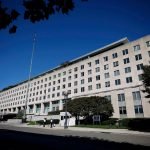Denver is planning to look at the feasibility of nuclear power generation for Denver International Airport. Denver Mayor Mike Johnston and Denver International Airport CEO Phil Washington will make a joint announcement Wednesday about studying what are called small module nuclear reactors.
The announcement comes on the day Colorado law changes the classification of nuclear energy’s definition under state law to include it as a clean energy resource.
Small module nuclear reactors do not have the massive generating capacity of large-scale facilities of the past with the high cooling towers. But advocates say they have the potential to provide consistent, reliable power.
“The idea, with many of the small modular reactors, is you can drive them up on a semi. put them down on a concrete pad and plug them in, and they just go,” said Professor Thomas Albrecht, director of the Nuclear Science and Engineering Center at the Colorado School of Mines. “The idea of many of these designs is you could keep adding them.”
CBS
Supporters of the technology believe it is safer than the designs of large-scale nuclear reactors of the past.
“Most of the small modular reactors aren’t cooled by water. They’re either cooled by molten salts, which have very, very high boiling points, or they’re cooled by liquid metals. And that’s actually the more common design,” said Albrecht.
The airport is expecting passenger numbers to increase to 120 million passengers annually by 2045. The city says, “A sustainable power supply will be necessary to meet the demands of airport assets, as well as the airport’s safety and customer experience goals.”
But the change in the law to identify nuclear power as clean energy still had opposition from many environmental groups. Dozens signed a letter to Governor Jared Polis opposing the change.
“First of all, nuclear energy creates nuclear waste. It simply cannot be regarded as clean when it is creating waste that lasts countless generations,” said Chris Allred, nuclear guardianship coordinator at Rocky Mountain Peace and Justice Center, and an environmental group based in Boulder. “It’s being sold that it’s safer. It’s being rebranded as advanced nuclear with new designs that have yet to be implemented. There are many that are still in a prototype,” he added.
There are firms proposing small modular reactors and improving designs. But opposition groups believe the technology is not the only energy source improving.
“As time moves forward, as you know, these nuclear technologies are trying to advance and get permitting, and things like that. Renewable energy technologies are also going to be advancing, and they’re advancing at a much faster pace,” said Jamie Valdez, executive director of Roots to Resilience, a Pueblo-based environmental group.
Any study of feasibility will have to consider cost. And the costs for the modular nuclear reactors are as yet unclear.
“So that is the big question,” said Professor Albrecht. “We have had most of the small modular reactor companies come to the Colorado School of Mines and make presentations. And one of those presentations was purely on the economics of it.” Larger nuclear facilities have scale in their favor. “As they get smaller, then it becomes a little more debatable,” said Albrecht.











